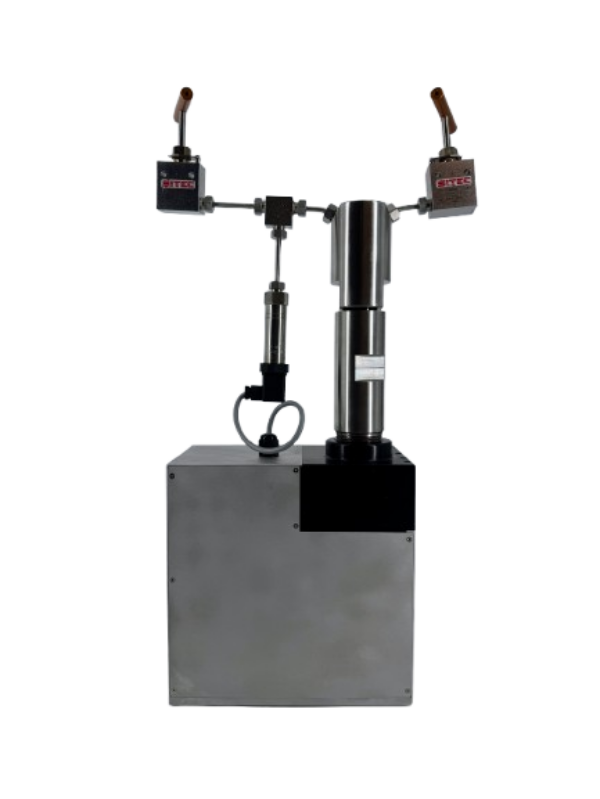6000 bar Volumetric Pump
The GEPEA laboratory (UMR – CNRS 6144) at the ONIRIS school in Nantes needed to upgrade its experimental capabilities by replacing a manual pump. The challenge was to generate extreme pressures in a controlled and repeatable manner. IRIAN MECATRONICS designed and manufactured a custom volumetric pump capable of reaching 6000 bar with very high control accuracy.
To carry out its research, the laboratory needed to pressurize a small-volume experimental cell with water. The existing manual system limited the precision of the pressure ramps and the repeatability of the tests. The specifications for the new equipment were therefore particularly demanding:
Very High Operating Pressure: To reach and stably maintain a pressure of 6000 bar.
Control Accuracy: The need to precisely control the flow rate and pressure ramps to supply a test cell of approximately 31 mL (cell + sample holder).
Automation: Replace a manual process with a fully automated and programmable system to ensure measurement reliability.
Faced with these constraints, our engineering department developed a compact and high-performance volumetric pump, fully software-controlled. Every technical choice was made to ensure the safety, precision, and durability required for extreme pressures.
The mechanical architecture is based on a stepper motor drive, coupled with a worm gear reducer and a roller screw. This non-reversible system provides significant mechanical reduction and ensures that pressure is safely maintained, even in the event of a power failure.
To withstand 6000 bar and ensure fluid compatibility, the pump body, piston, and cap were machined from a precipitation-hardening martensitic stainless steel (15-5 PH / F6NM type). This alloy offers an exceptional combination of high mechanical strength, hardness, and good corrosion resistance, which is essential for this application.
Control is managed by a Human-Machine Interface (HMI) developed in LabVIEW, allowing users to program complex cycles with up to 10 stages, set flow rate setpoints (from 0.0002 mL/min to 4 mL/min) or pressure ramps in bar/s, and record all test data for later analysis.

